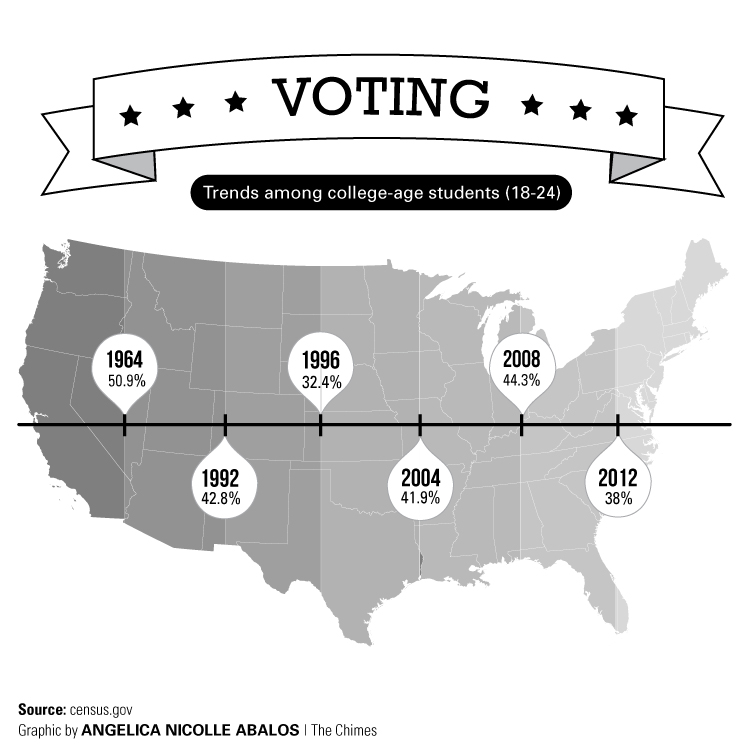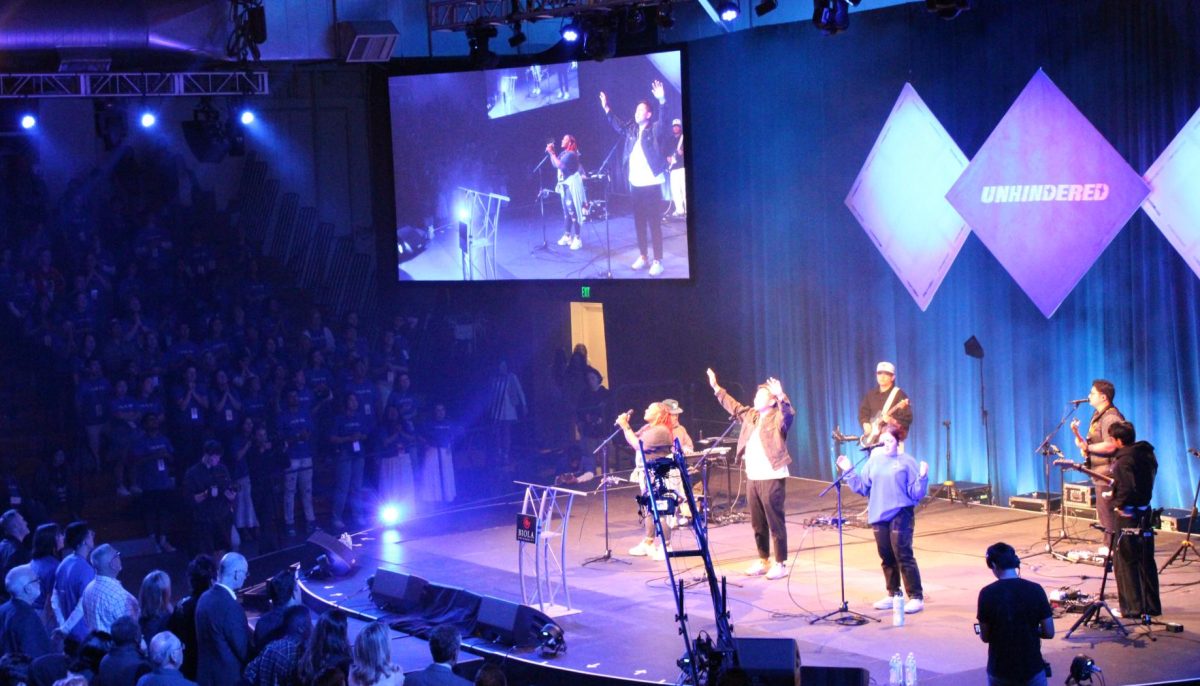
As November’s midterm elections quickly approach, many Biola students will not participate in the voting process due to a lack of information.
“Students probably vote very little in any election, given that at this particular time in the average 18 to 29 year-old’s life, politics is generally not on their radar,” said Scott Waller, political science department chair.
This lack of participation is not unique to Biola students, however. In 1964, 50.9 percent of 18 to 24 year olds participated in voting for presidential elections; that number had fallen to 38.0 percent by 2012, according to the U.S. Census Bureau.
STUDENTS FEEL UNEDUCATED
A variety of reasons contribute to the lack of student participation in elections, many of which stem from the fact that students feel uninformed about the election.
“I think it’s important to vote, but I think it’s important to have an educated vote,” said Katie Mullett, sophomore sociology major.
Many other students share this attitude toward voting, admitting they would participate in the midterm elections if they had readily accessible information on the election.
“I will maybe vote depending on how much I know about the election. It’s important to vote if you are knowledgeable about it,” said freshman kinesiology major Kambria Duskin.
THE UNIVERSITY'S ROLE
Students said they would find it very beneficial if the university provided opportunities for them to become informed about elections.
“If I had a voter’s guide and something that told me where and when to vote and a guide on all the hot issues that each party stands for, each side stands for, then, yeah I’d be happy to vote,” said Andrew Lee, sophomore psychology major.
Students want the university to utilize various outlets to announce upcoming local, state and national elections, as well as information on the elections within newsletters.
“Maybe emails. We college students check our emails a lot. I didn’t even know about it, so if I had received an email, I would have been more informed,” said Ashley Jean-Baptiste, freshman sociology major.
Students would also like Associated Students to play a role in helping students gather information on upcoming elections through the AS Newsletter.
“I read those articles in the bathroom. Maybe they could put an announcement in them and include some information on candidates,” said freshman sociology major Alise Mossuto.
IMPORTANCE OF THE VOTE
Although students among the college age demographic seem apathetic towards voting, most still recognize the importance of their contribution.
“Every vote counts,” Jean-Baptiste said. “In a sense your vote is your voice, so if you want to make a change, you have to vote for it.”
This thought resonates with many other students on campus as they acknowledge the potentially broad influence of an apathetic attitude.
“For a while… I thought one less vote was no harm done to the election. Now I’m starting to realize that if everyone has that mentality, then obviously it makes a big impact on the outcome of the election,” said junior biology major Joseph Vallin.
In order to improve the college age involvement in the election process, some students believe that local action is essential.
“Building a broader culture of participation in politics, such as in the SMU and AS elections, I think will carry over to stuff that people will consider to be of more importance in local, state and national elections,” said sophomore Micah Weichbrodt.






